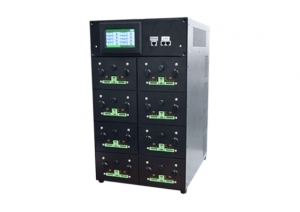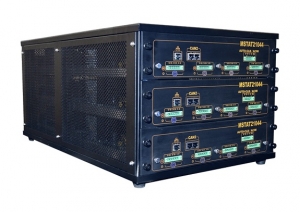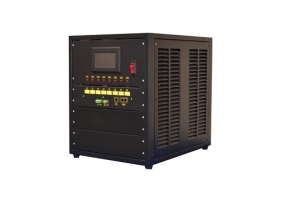Battery Test
Showing 17–20 of 20 results
-

Arbin HPS Series Ultra Precision Battery Analysis System
Arbin’s HPS Series is a low current Battery Tester with High Precision measurement capabilities to detect minute signatures of battery degradation trends early in the testing life cycle. This greatly reduces the battery development cycle. The HPS will assist battery development for those involved in material research. The HPS allows researchers to conduct high precision coulombic efficiency tests on Batteries or Capacitors with precision reaching below 10 ppm. Arbin’s MultiZone Temperature Chamber provides constant temperature condition.
Features:
- Voltage Range: -6V to 6V
- Current Ranges: 5A/100mA/10mA/1mA
- Channels: 2
- Resolution 24 Bit
- 10ppm Measurement Accuracy
- Comprehensive Battery Test Software
-

Arbin Cell Isolating Thermal Safety Chamber
Arbin’s Cell-Isolating Thermal Safety Chamber (MZTC) is a battery test chamber with 8 independent temperature chambers in 1. Insulation and protection between each chamber provides greater temperature control and a safe testing environment by isolating each cell or pair of cells, as well as making connections easy. The compact, independent battery test mini-chambers utilize state-of-the-art thermal management techniques to ensure a stable and uniform temperature for all cells without hot/cold areas that over-sized chambers suffer. Isolating cells this way provides greater independence to access and monitor the devices under test, and prevents a weak or failed cell from affecting others during testing. Over 10 different battery trays are available to accommodate a variety of cell types and make connections easy, along with racks to hold up to 6 MZTC’s (up to 192 cells).
- 8 Independent Mini Chambers
- Isolated Chambers
- Unique Temperature Setpoints
- Uniform Temperature Thermal Management
- Integration with Arbin Battery Testers using MITS Pro Software
-

Arbin MSTAT Multi-Channel Potentiostat/Galvanostat
Arbin’s Multi-Channel Potentiostat/Galvanostat (MSTAT) system is designed for high performance electrochemical research of battery materials and advanced battery cell testing. Each channel is an independent potentiostat/galvanostat and gives users full control of test profiles and data logging to offer unmatched flexibility. No other potentiostat manufacturer offers range of channels, voltage, current, and feature-set as Arbin. Researchers and startup companies who begin working with Arbin can continue to use our battery testing systems and software solutions as they grow and expand.
The Arbin MSTAT provides true bipolar circuitry to ensure cross-zero linearity with no switching time between charge and discharge. MSTAT hardware provides both digital and analog voltage control. Digital control maximizes the safety of battery cycling and can handle dynamic device resistance, while analog control enables the fast response and stability necessary for electrochemical applications.
- Voltage Range: +/-5V
- Current Range: 5A
- Measurement Resolution: 24-bit (1 part in 16,777,216)
- Measurement Precision: <40ppm
- Control Accuracy: <0.01%
- Minimum Step Time: 5ms
- Input Impedance: 100G Ohm
- Data Logging Rate: 2000 points per second, per system
- Connection for PC: TCP/IP (Ethernet)
- Ventilation Method: air-cooled with variable speed fans
-

Arbin Redundant Safety Monitoring System
Arbin’s new Redundant Safety Monitoring System (RSMS) is compatible with any manufacturer’s battery testing systems. The key word is redundant. Many test equipment manufacturers claim to have the same level of safety as Arbin testers with multiple layers of of safety limits, communication watchdog, internal relays to disconnect the device under test, etc. Comprehensive features like these do a great job of protection, but some facilities require a fully independent 3rd party system to monitor testing when people are not present such as overnight or on weekends. This is where the RSMS becomes necessary. Plus it’s never a bad idea to have an extra layer of protection.
- Fully indepentent from any existing test stand (any brand)
- Multiple, independent channels per RSMS unit
- User-configurable safety limits for: Voltage, Current, Temp, & Power
- View real-time status of each channel (safe vs. unsafe)
- Configurable alarm signals, including external signal
